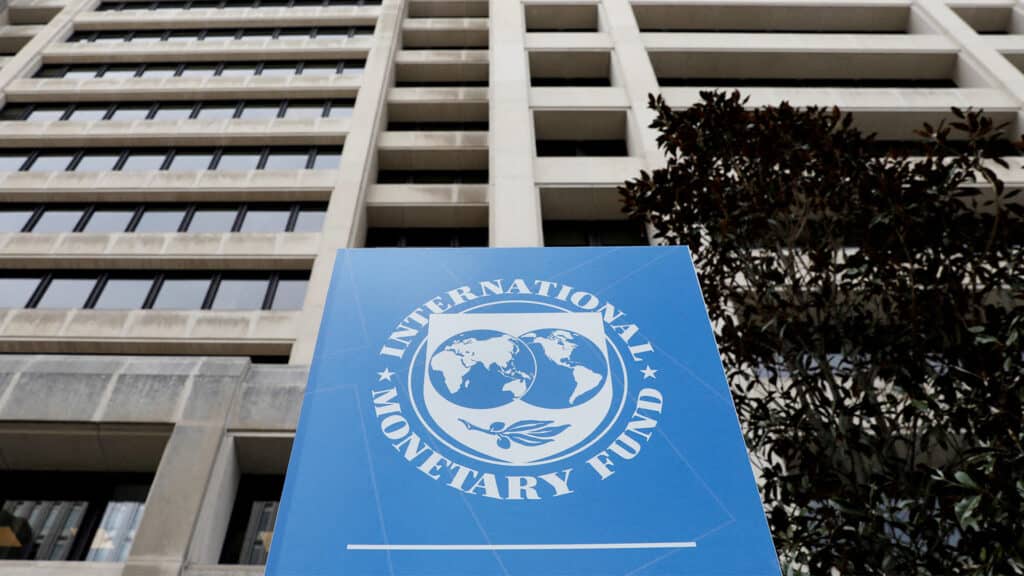IMF urges Kazakhstan to limit withdrawals from National Fund

According to Nicolas Blancher, deputy director of the IMF’s Middle East and Central Asia department and chief of the IMF’s mission for Kazakhstan, the International Monetary Fund (IMF) is concerned over the growing money withdrawals from the National Fund by Kazakhstani monetary authorities, who are using these funds to cover the budget deficit.
«Another source of concern is the constantly growing use of the National Fund’s assets. There is nothing new to it, but we see this practice is widening… This causes several problems, like opaque fund use — some transactions are completely unexpected with no information properly disclosed,» he said during a press conference.
As Blancher highlighted, the National Fund isn’t meant to cover the state budget deficit every year but rather to participate in the long-term strategic distribution of funds to support future economic and infrastructural growth.
«Another problem with using the National Fund assets is that it actually legitimizes having a budget deficit, making the fiscal situation, as we have described it, an accelerator of the situation. In other words, as the current fiscal policy spurs inflation itself, the growing deficit is forcing the government to put more pressure on ‘the brake pedal,’» Blancher noted.
The IMF representative believes that Kazakhstan must adhere more strictly to the rules regarding the use of the National Fund’s assets, particularly to a few exceptions when funds can be withdrawn.
«Exceptions must be exceptions for real. You have to be serious when it comes to the rules,» he said.
In addition, Blancher once again pointed to the need to ensure that publicly available state sector data is of high quality. The IMF provides Kazakhstan with all the required technical assistance aimed at making activities of quasi-public enterprises and funds more transparent.
Among other potentially troubling issues, the fund representative highlighted the risks associated with the global economy, noting that they remain elevated. These are geopolitical risks and the risk of oil price fluctuation, which are relevant to Kazakhstan, as well as the progression pace of the planned reform implementation, according to Blancher.
Blancher also shared other insights from the IMF mission’s final report, which is planned for publication in late November.
«We see the economy is steadily growing, while inflation is declining this year. We foresee economic growth at 3.9% in 2024, largely driven by high public spending. As you already know, inflation dropped to 8.4% in August, which is obviously a very positive development. If we look into the future, the growth rate will increase in 2025 thanks to higher expected oil production volume, thus determining the advance rate at about 5%,» he said.
However, in the medium term, the IMF forecasts that Kazakhstan’s non-oil economy growth rate, which doesn’t depend on oil and oil product price oscillation, will stabilize at 3.5% per year.
«In addition, we propose several recommendations on improving the effectiveness and credibility of the monetary policy, yet this applies to many countries, particularly Kazakhstan. It is necessary to improve the monetary policy and make it more effective. Turning to Kazakhstan, we have identified a couple of problematic areas on which we have made recommendations to the official bodies of Kazakhstan. We believe it is necessary to reinforce the independence of the National Bank. There are different aspects to this. I think this sort of National Bank independence is exactly what is needed to support the monetary policy,» Blancher explained.
Moreover, the IMF representative noted that underperformance in tax collection is another concern for the fund.
«Some issues are of concern to us… We constantly see underachievement in terms of fiscal indicators. We believe that this situation will remain the same in 2025, given the budget estimate for this year,» he said.
As Dyna Heng, a senior IMF’s economist for the Middle East and Central Asia, highlighted, the organization has suggested Kazakhstan’s monetary authorities increase taxes and abolish privileges, which might add an additional $8.3 billion to the treasury.
In late September, the National Fund’s volume surpassed $69.3 billion for the first time since its establishment in 2000. The fund has been setting records since May 2024, when it reached $62.1 billion. The volume grew by 4% compared to July and 17.5% year-on-year. Invested assets totaled approximately $62.4 billion, reflecting a 4% increase from July and a 9.5% rise compared to August 2023.
The National Fund’s foreign exchange assets reached $62.5 billion, the highest amount since May 2017 ($63 billion). The increase was 2.4% month-on-month, 4.5% year-on-year, and 4.3% year-to-date.
From the beginning of the year until May, large withdrawals reduced the National Fund’s resources from around $60.2 billion on January 1 to $59.2 billion by May 1. However, in May alone, $2.4 billion was added to the fund, increasing its volume from $59.2 billion to approximately $60.6 billion over a month.
In June, the Ministry of Finance revised data for 2023, and their new calculations revealed that for the first six months of 2024, the National Fund volume insignificantly increased by $53.4 million, or 0.09%. If at the beginning of the year it was $61.82 billion, then on July 1 it amounted to roughly $61.87 billion, the Ministry of Finance reported. However, withdrawals significantly exceeded inflows, causing the National Fund’s volume to drop to $61.5 billion in July.

